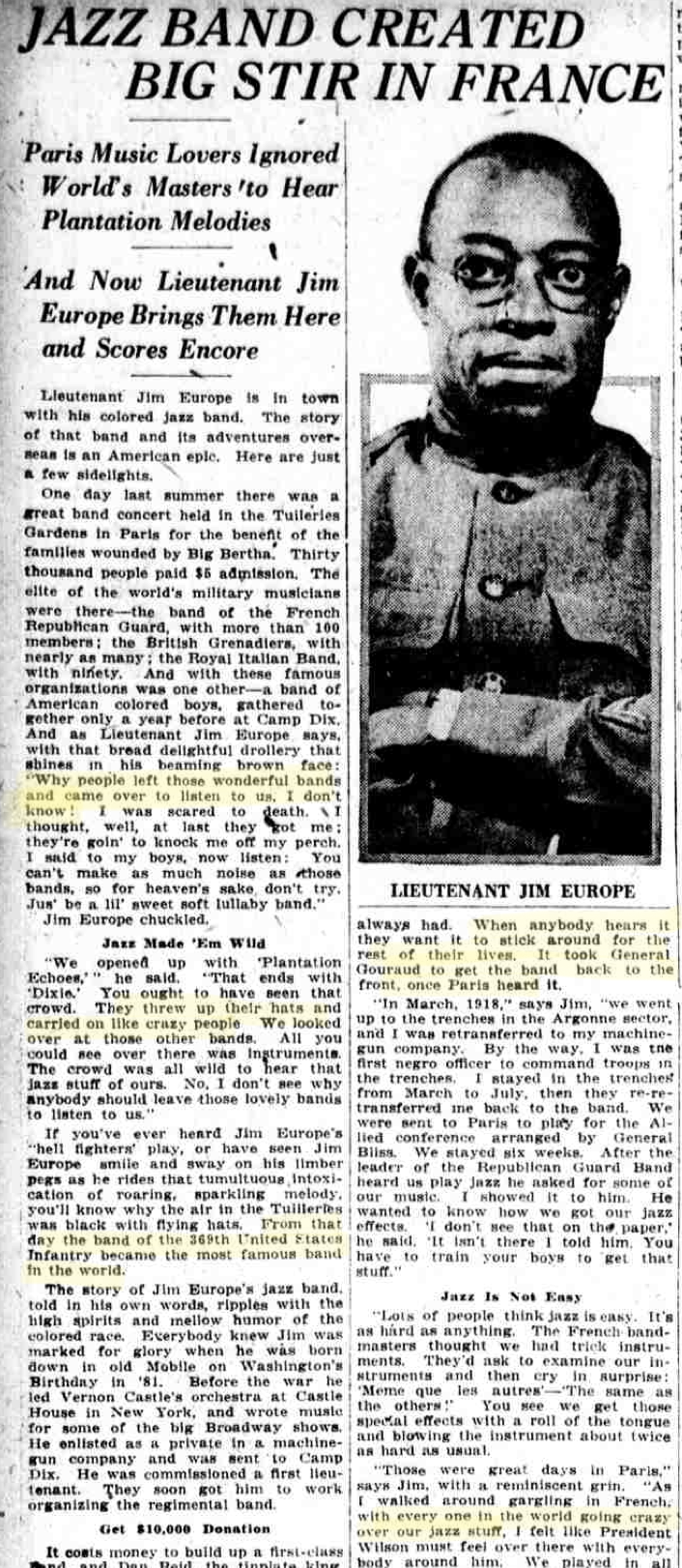
March 21, 1919. Evening Public Ledger

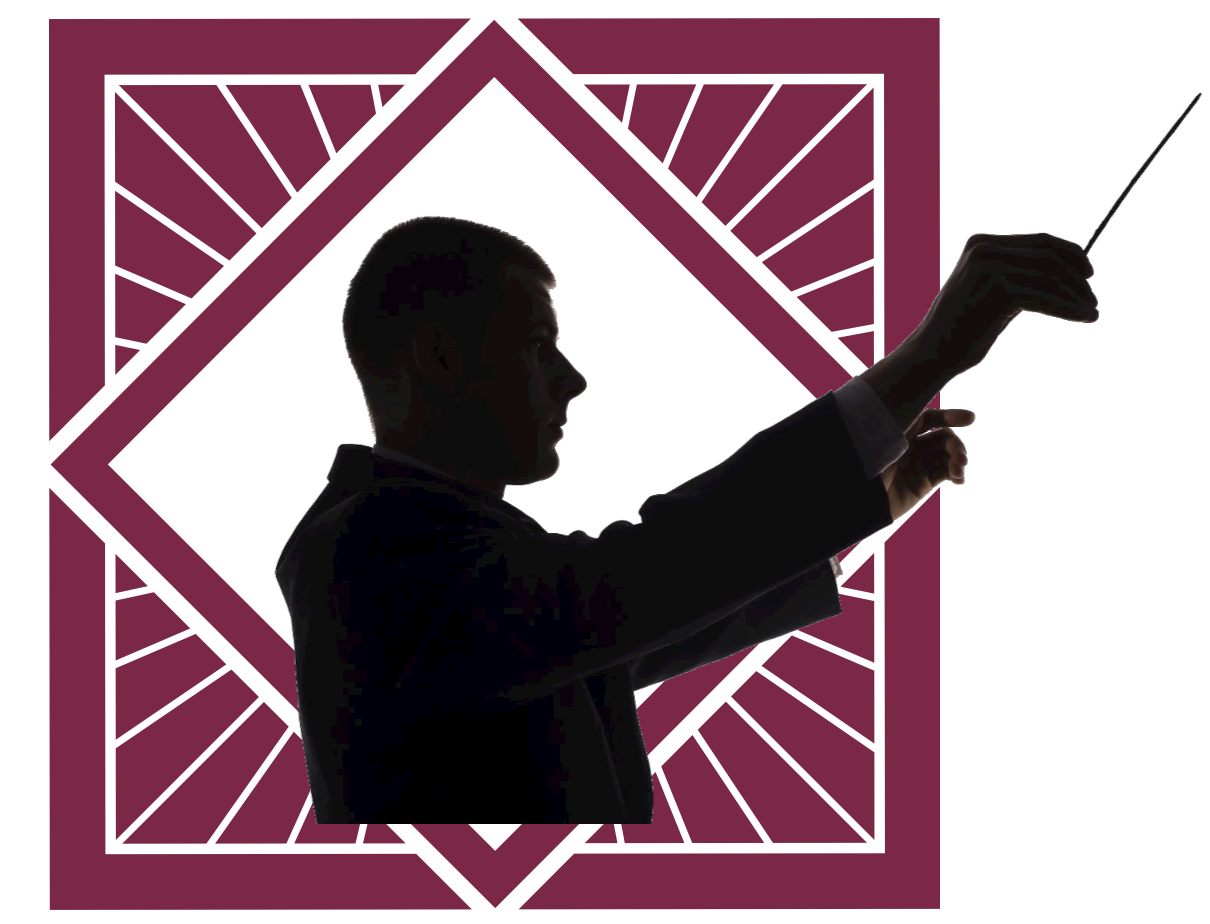


369th Infantry Regiment in March Formation, Crossing a Bridge in New York City, c. 1917. Schomburg Center for Research in Black Culture
Jim Europe and the Harlem Hellfighters additionally broke cultural barriers during their service. After enlistment, James Europe was promptly recruited to form “the best damn brass band in the United States Army.”

March 21, 1919. Evening Public Ledger
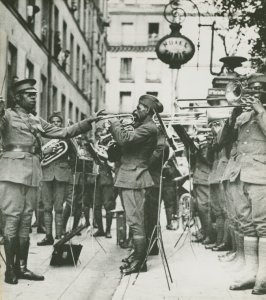
James Reese Europe and the 369th Infantry Regiment Band playing outside an American Red Cross Hospital, Paris. 1918. Schomburg Center for Research in Black Culture
Excerpt from Jazz, 2001.
"Many a time in the rigorous camp life the regiment led during preparatory training here in the States, I would often hear a soldier say as the band would pass by on it's way to or from a formation, 'If it hadn't been for that d__n band, I wouldn't be in the army'"
- Noble Sissle, in 'Memoirs of Lieutenant Jim Europe'
The band toured France, introducing proto-jazz, the only unique American music form, to civilians and military personnel alike. The Hellfighters ignited a passion for jazz and forever changed European music. The band lifted the morale of soldiers and enticed more to enlist.
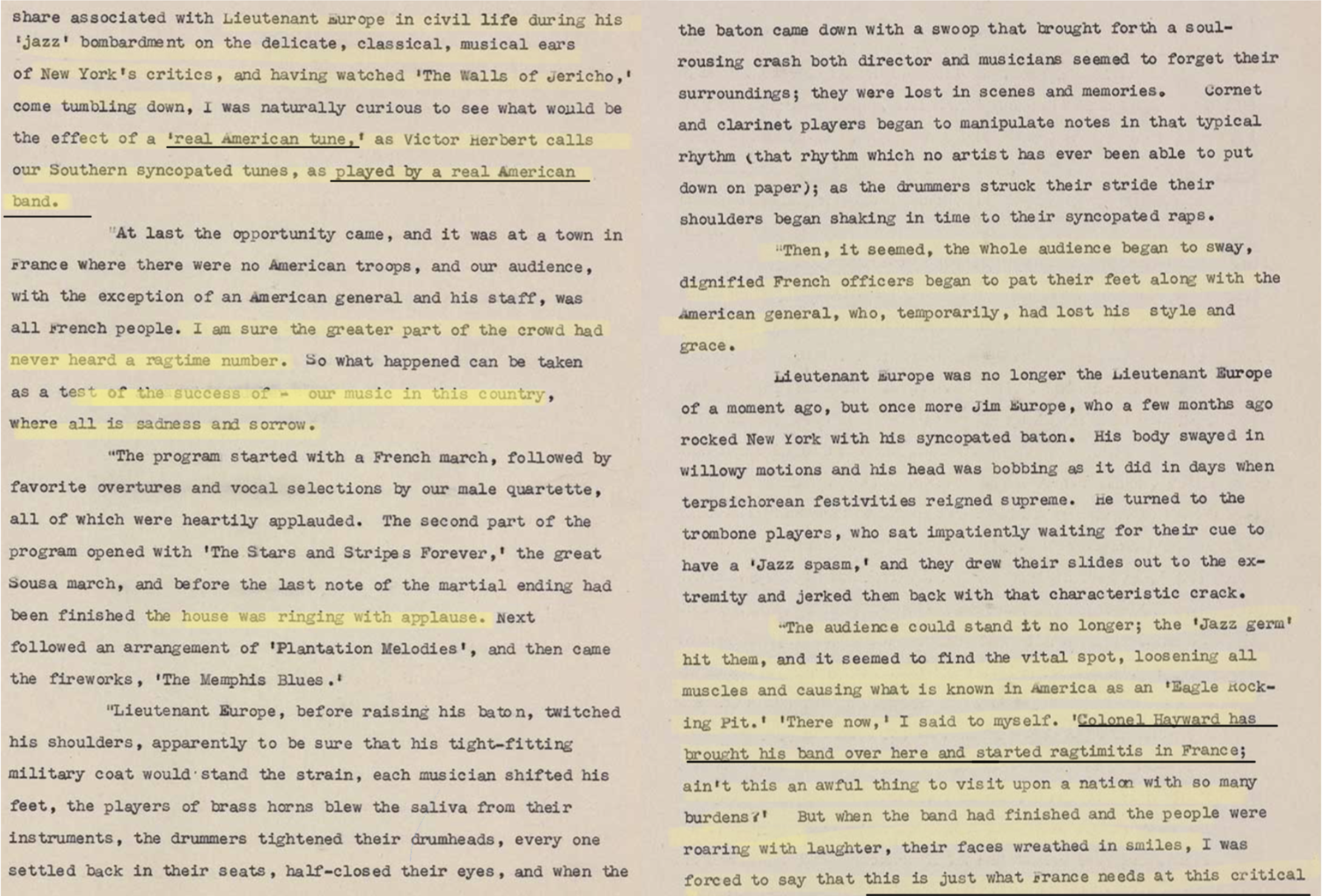
Noble Sissle. "Memoirs of 'Jim' Europe," ca. 1942. Typescript manuscript. NAACP Papers,
Manuscript Division, Library of Congress
"But everywhere in France the question is asked: "Did you hear the 369th Band?" Down in the Savoie Leave Area, where the band spent some time, this question is asked by French and Americans alike. At Aix-les Bains, Chambery, and Challes Eaux we were being told how wonderful it was, months after it had gone."
-Mrs. Addie Hunton, YMCA Worker, 1919
"Colonel Hayward has brought his band over here and started ragtimitis in France; ain't this an awful thing to visit upon a nation with so many burdens? But when the band finished and the people were roaring with laughter, their faces wreathed in smiles, I was forced to say that this is just what France needs at this critical time."
-Noble Sissle, 1918
The Harlem Hellfighters paraded triumphantly through New York City on February 17, 1919 to a desegregated audience estimated to be in the hundreds of thousands.
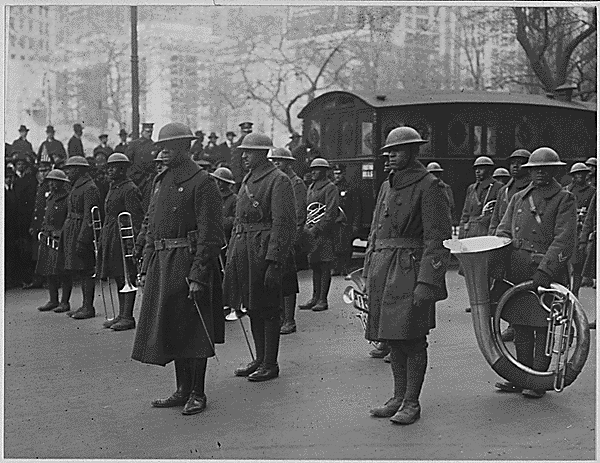
"Lieutenant James [Reese] Europe and his famous band of the 369th Infantry in the parade in Fifth Avenue. Lieutenant Europe's famous band was known as the best in the American Expeditionary Forces in France. General Pershing borrowed it for a month. It also took part in the 4th of July celebration in Paris.". February 17, 1919. National Archives
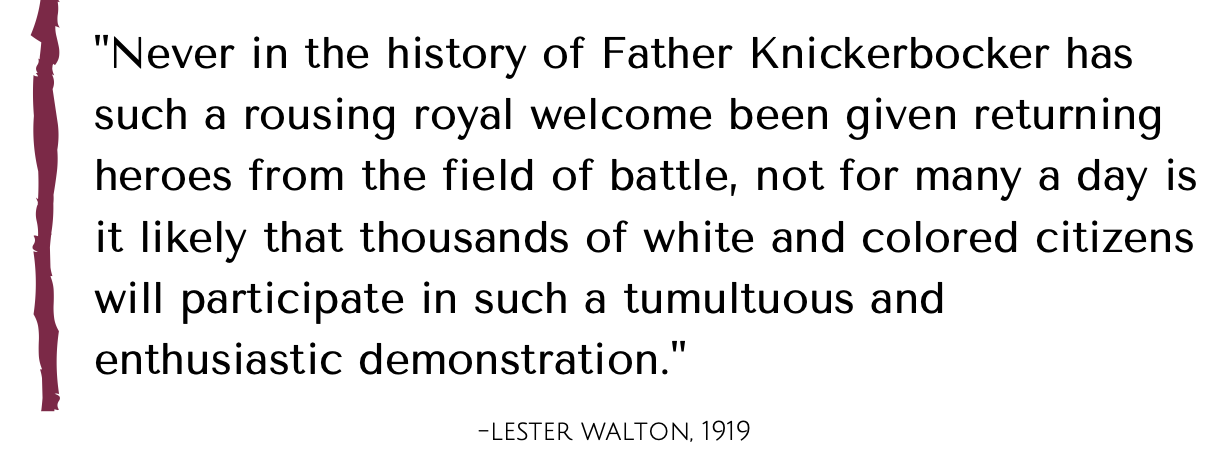
The Hellfighters’ band’s fame resulted in the recording of albums, as well as tours of Europe and America.
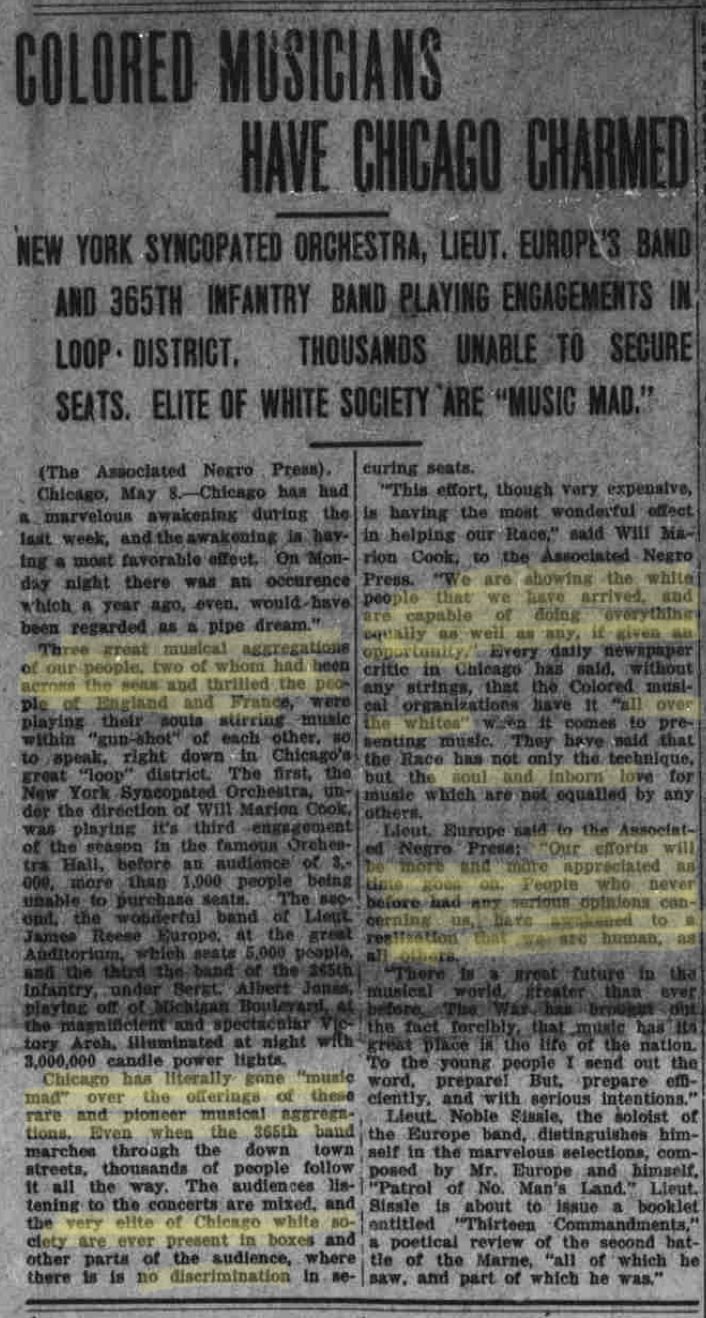
May 10, 1919. The Dallas Express
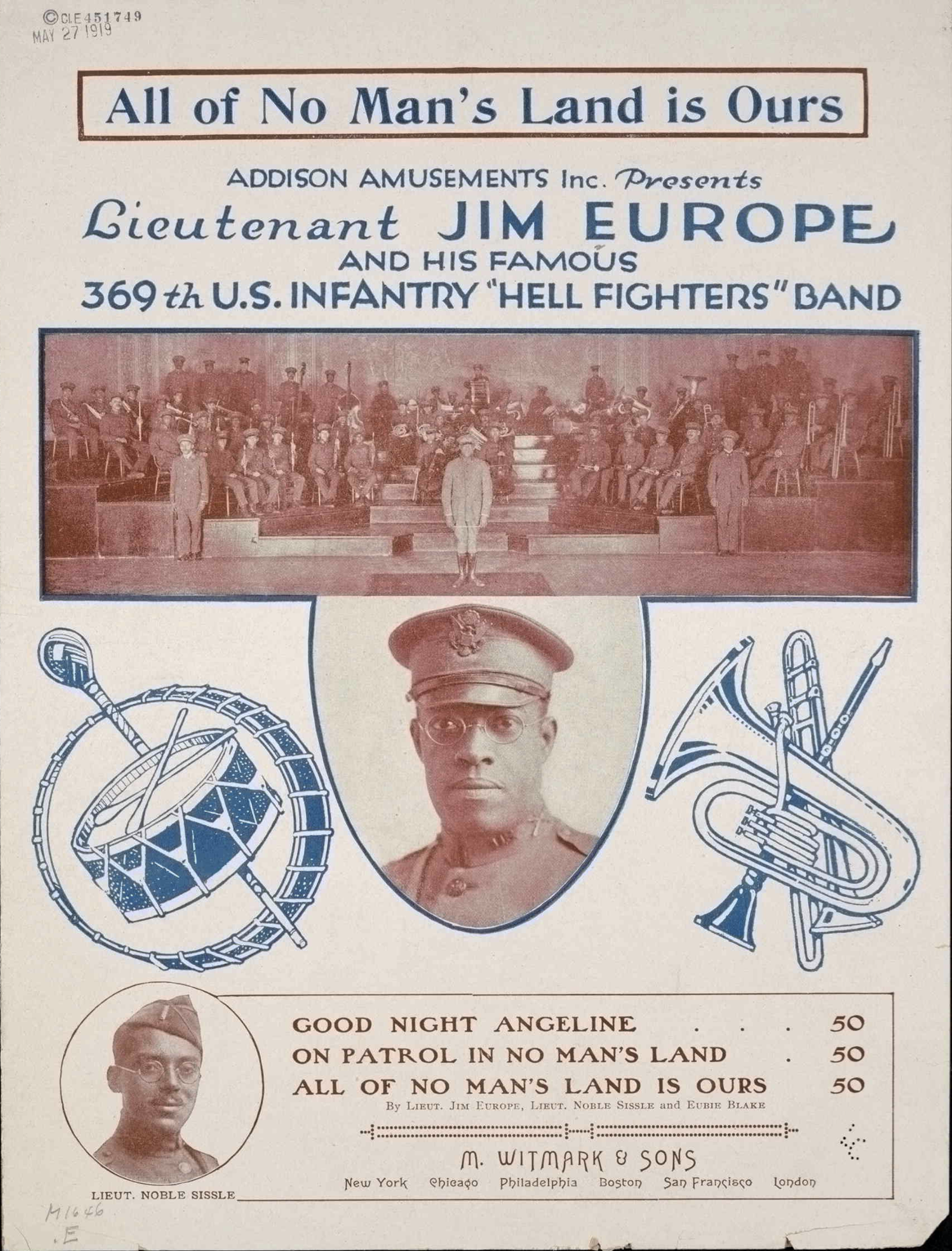
All of No Man's Land is Ours, 1919. Library of Congress

May 3, 1919. The Chicago Defender
"James Reese Europe and the Harlem Hellfighters fought a “two-front” war. On one side, they had to fight against the Germans, but they also had to fight the racism of their own government. They proved that black Americans could not only fight courageously in war but also be led by black officers. This was especially important because it proved that black people were as smart as white people, and if they were capable of leadership on the battlefield, why couldn’t they take the lead at home? Helping to prove that black people could be leaders helped pave the way for generations of African American soldiers, scholars, business executives, and, now, one U.S. President."
-Excerpt from personnal interview with Max Brooks, February 5, 2020
Jim Europe and the Harlem Hellfighters broke the cultural barrier between Europe and America with their music. Their valiant fighting proved their worth and rightly-earned renown, making them a symbol of black pride.
Despite proving their worth through service, veterans returned to a flood of racial violence during what was called the Red Summer.
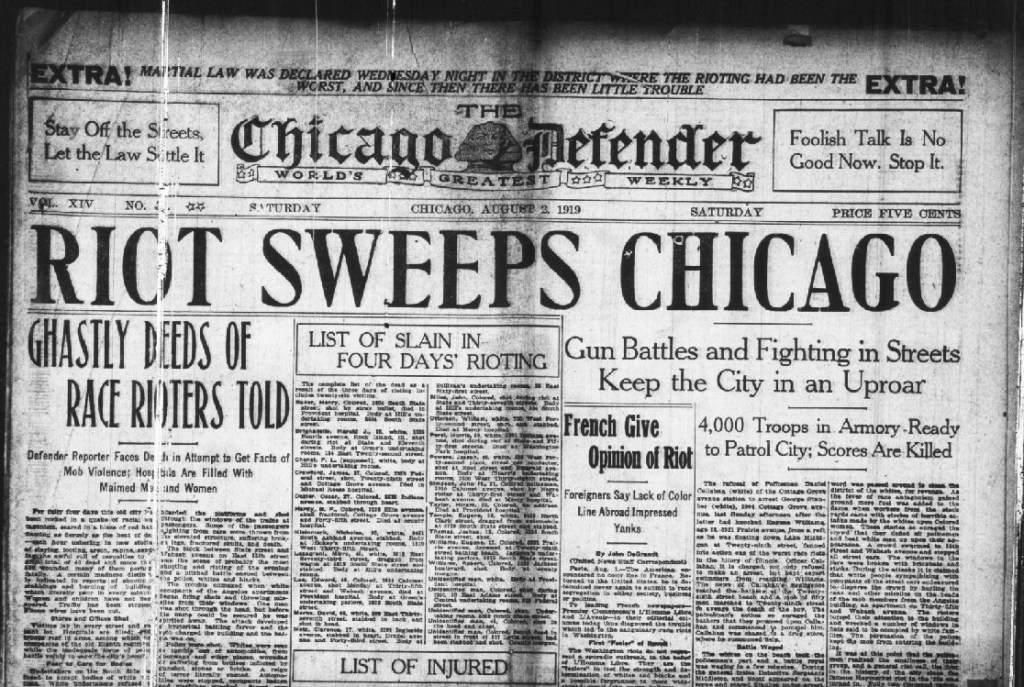
August 2, 1919. Chicago Defender

We return.
We return from fighting.
We return fighting.
-Excerpt from Returning Soldiers, W.E.B. Du Bois, 1919

"The state militia was called in to quell the violence on Chicago's South Side during the 1919 race riots", 1919. Chicago Tribune